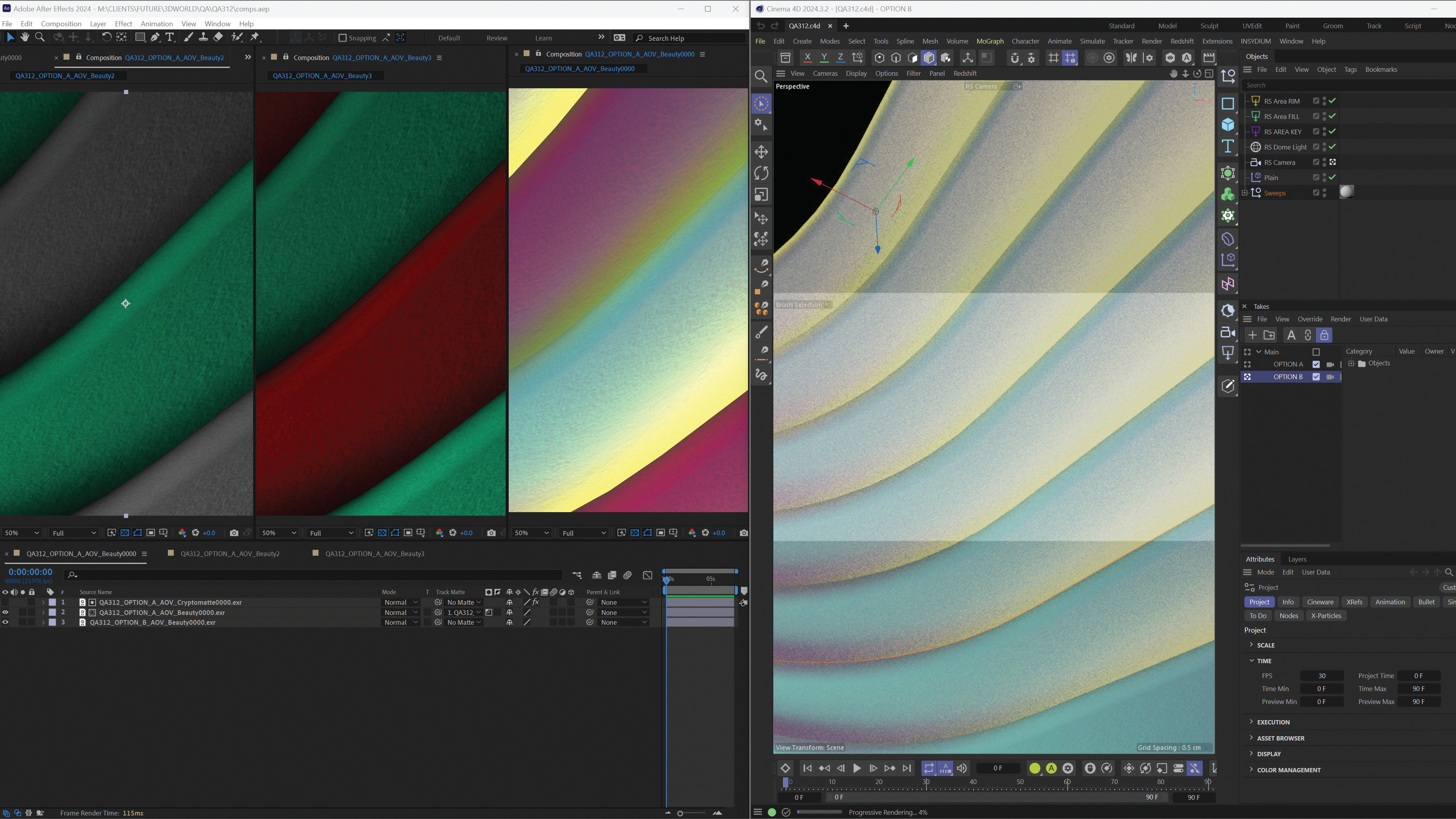Comic legend Alex Ross pulls no punches
The realist painter comes out of hiding to talk about the 'horseshit' of modern comics.
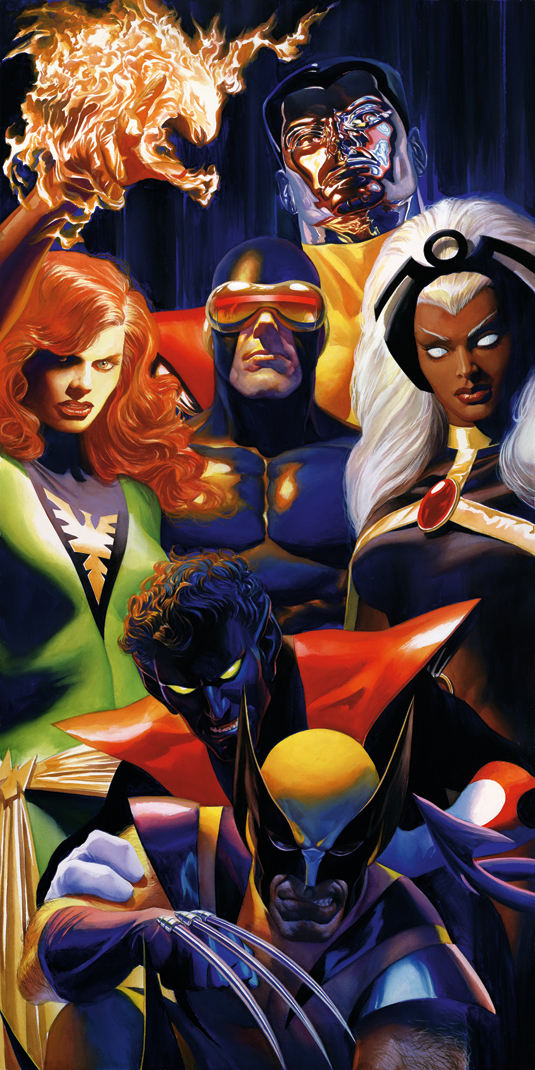
The legendary comic artist Alex Ross is usually as quiet and reserved as his superheroes are loud and brash.
Notoriously media-shy, it takes a good reason for him to come out of his self-imposed comic cave to chat about his art – art that has long crossed over from the comic page into the fine art galleries.
Having written the intro to Titan's 'lost' 1959 art book I'd Love to Draw by his hero Andrew Loomis, ImagineFX chatted to the artist about why Hollywood may have it all wrong with their superhero movies, the 'horseshit' of modern comics.
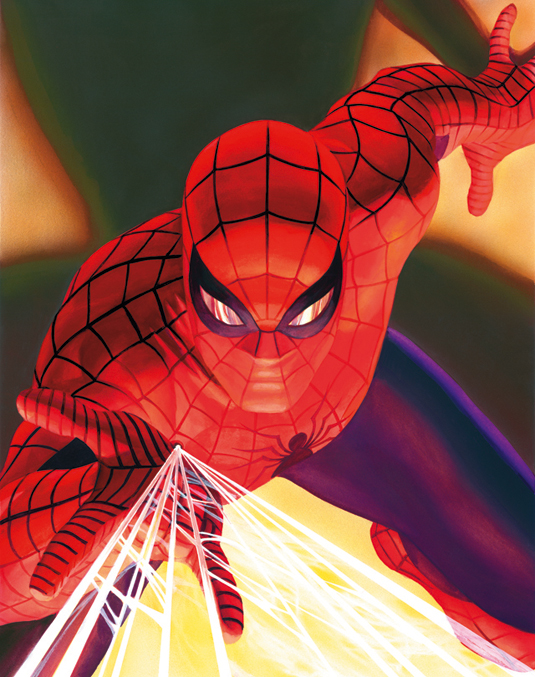
On Andrew Loomis...
I grew up with his books. They were one of the few places you could see really attractive women drawn without their clothes on... Somewhere along the way you kind of absorb an interest in a certain art style.
On realist art...
It connected with me as I was growing as a young artist. Realism seemed the highest point of achievement. If I see a fantastic illustration with a realistic anchor to it, whether it's the figures or setting or the general rendering, I believe what I'm being sold that much better.
On getting too attached to Superman...
I've learnt not to get too attached. I've had abundant freedom on projects, and in some ways that way can lie madness.
If you start thinking that your version of a thing is the most popular, beloved version, then when they go a different way, as they have with their version of Superman today, it breaks your heart.
It makes you think that everything thing you did wasn't appreciated. So, you gotta kinda calm down. That's a lesson I'm trying to absorb.
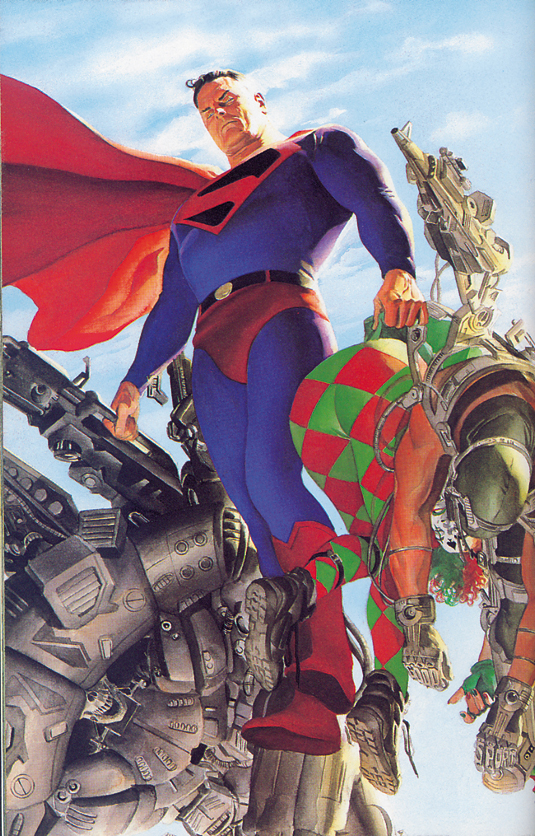
On the 'horseshit' of reinventions...
The intent of [many of] the companies is redesign, reinvent, for a modern readership who want their own version of a thing as apposed to their grandfather's version of a thing.
I've always thought there's a beautiful eloquence of having a connection to something that was designed 50, 60, 75 years ago, that is essentially undiluted. They don't need to be over-altered for the sake of upcoming generations. They don't have to be unified.
If you have to always make characters younger because, 'well, young people won't connect with older protagonists,' well, that is such horseshit.
On his contribution to comics...
The market place is saying: 'everybody has to be young and pretty.' Really?! Everybody?! I'd like to think that the little part I got to do with these characters presented them with the weight of what their years represent.
In some cases that means making the characters look a little older.
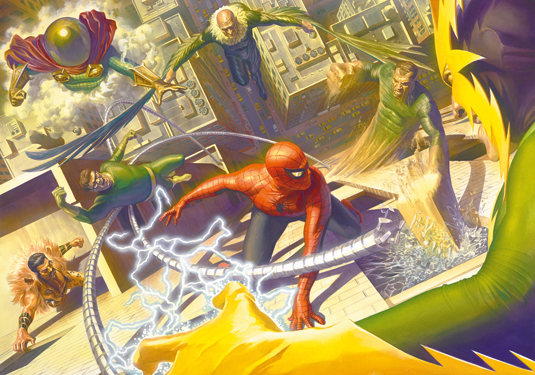
On painting a Queen album cover...
I've yet to illustrate Queen. Queen the band, not the queen. Something with Freddie Mercury circa 1974. In fact I'm possibly working on a reissue of a Queen album cover or two...
It was enough for me to know that Brian May was familiar with my work. That was an amazing thing. That's enough right there – that I've been known by one of my heroes.
On being out of the public eye...
I can be very loquacious if I want to be. I can talk endlessly about the thought processes behind the work I do.
I've often found that the way that I communicate about stuff doesn't often translate to other people understating me. So I can't assume that I have that golden tongue to communicate to the masses.
On pop art...
What's bizarrely unique about my work getting shown at the Warhol museum is to think how [pop artists] used comic characters in a number of occasions, like the work of Lichtenstein.
There was a type of tongue in cheek aspect to adapting these images and allying them to fine art. What I do, there's no tongue in cheek. There's no cynicism. I'm trying to represent the history of, you know, traditional 20th century illustration, and bring it to the medium that has been in a more cartoon ghetto.
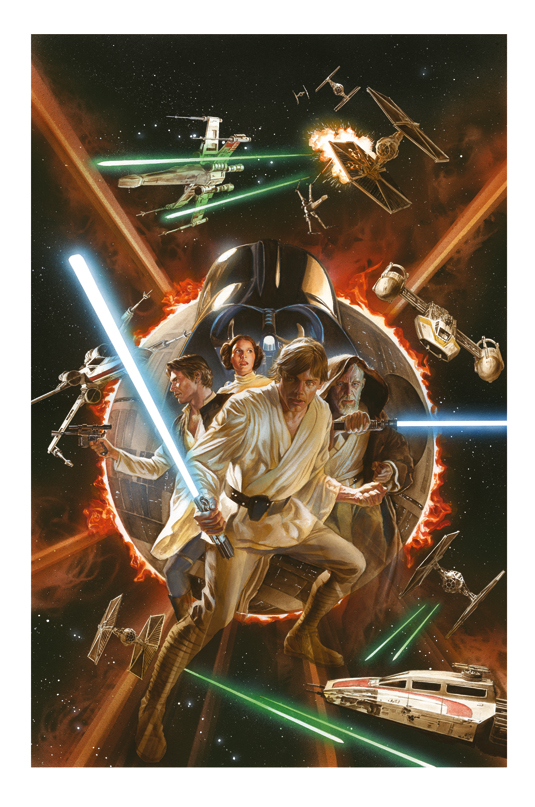
On traditional vs digital...
Have you ever done a test between the John Henry approach – what is the speed of a man who's comfortable using physical material, whether that's water-based paint... that kind of media – verses a digital version of the same. Would [digital] really be that much faster?
In my experience, I can do a painting in a day, or a half, depending on its complexity, and it sounds like it's the same production time for most of the digital artists I know. So I state that John Henry could beat the machine... or at least die trying.
… I didn't sound too dismissive of computer arts did I? Cuz I know that they're a mean lot, that if you dismiss them or talk crap, boy, they are going to roast me alive.
On being computer illiterate...
I am computer illiterate, though. I even dictate emails to my wife to type up. I can open up my own emails in my iPad. I've got that much skill. Though I can't respond to any of them!
Words: Alex Ross
Alex Ross got his break in comics in 1994 with Marvels, swiftly becoming one of the greatest cover artists of all time. He's also painted interiors for his most famous titles Kingdom Come (1996) Earth X (1999–2000), and Justice (2005–07). This article originally appeared in ImagineFX magazine issue 117.
Like this? Read these:
- Read the full Alex Ross interview in the comic issue of ImagineFX
- This Baroque-inspired art will get under your skin
- How to generate ideas out of chaos

Thank you for reading 5 articles this month* Join now for unlimited access
Enjoy your first month for just £1 / $1 / €1
*Read 5 free articles per month without a subscription

Join now for unlimited access
Try first month for just £1 / $1 / €1
Get the Creative Bloq Newsletter
Daily design news, reviews, how-tos and more, as picked by the editors.

The Creative Bloq team is made up of a group of design fans, and has changed and evolved since Creative Bloq began back in 2012. The current website team consists of eight full-time members of staff: Editor Georgia Coggan, Deputy Editor Rosie Hilder, Ecommerce Editor Beren Neale, Senior News Editor Daniel Piper, Editor, Digital Art and 3D Ian Dean, Tech Reviews Editor Erlingur Einarsson, Ecommerce Writer Beth Nicholls and Staff Writer Natalie Fear, as well as a roster of freelancers from around the world. The ImagineFX magazine team also pitch in, ensuring that content from leading digital art publication ImagineFX is represented on Creative Bloq.
